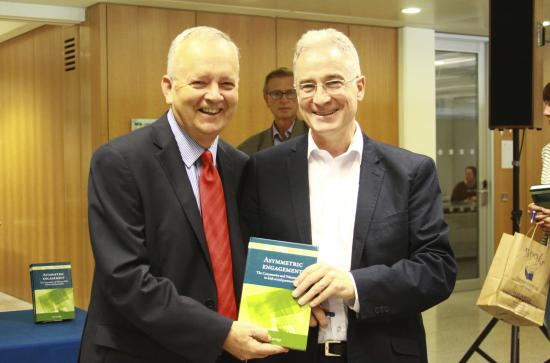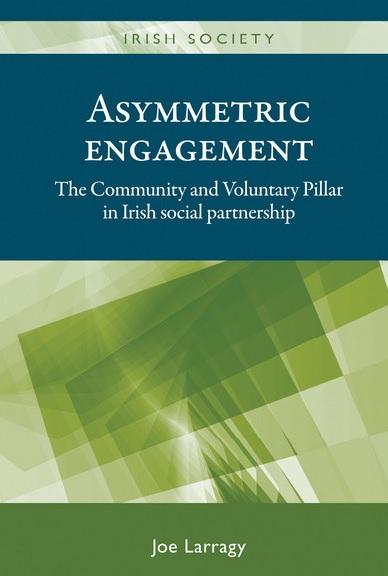
Asymmetric Engagement - Book Launch and Roundtable/Seminar
On 9th September the Department hosted the launch of a new book by Dr Joe Larragy. Asymmetric Engagement - the Community and Voluntary Sector in Irish social partnership, published by Manchester University Press, is a study of one of the most innovative features of neo-corporatist institutions in Ireland whereby community and voluntary sector organisations concerned with the unemployment, marginalized communities, poverty, women and several other minority interests and causes became social partners. These developments have been regarded in a range of ways but seldom studied systematically or in detail. The book aims to address the deficit in both empirical and theoretical terms.
Professor Philip Nolan, President of Maynooth University, who launched the book, commented:
“This is a fascinating, insightful and important book: applying both a thorough empirical approach and a sophisticated theoretical framework to the community and voluntary pillar of Irish social partnership, Dr Larragy has advanced an utterly new conceptual lens with which to study the successes and shortcomings of community and voluntary groups as political and policy influencers. It is a significant intellectual achievement, and a major contribution to our understanding of civil society. We are deeply proud, as academic colleagues, and as an institution, of this groundbreaking work.”
The book launch, in the new Library at Maynooth University, was preceded by a well attended roundtable/seminar on the theme: “Time for a new social contract”, with contributions from Prof. Sean O Riain, Dr Mary Murphy, Anastasia Crickley, Anna Visser, Dr Sean Healy and Professor Fred Powell and chaired by Dr Larragy.
Professor Powell said that the book was a very significant and scholarly contribution to the understanding of civil society and a roadmap for the advancement of democracy: “I think this book makes a very important contribution to the understanding of civil society in Ireland. Its case studies bring a unique insight into Irish governance and understanding of 'citizenship from below’. The scholarship is superb. It should be widely read.”
At the launch, Dr Larragy said that the book started out from the lack of agreement on how to characterise the role of community and voluntary associations in a tripartite system of negotiated governance: “While critiques of the innovation emerged from the left, the right and the centre, most views were not well-grounded in theoretical and empirical analysis. Typically views included incorporation, unjustified influence to small groups, distraction and “froth”. The book is a case study that focuses on the Pillar as a whole and on four pivotal component organisations or associations within the Pillar, namely, the Irish National Organisation of the Unemployed (INOU), the Community Workers Co-op (CWC), the Conference of Religious in Ireland Justice Commission (CORI Justice), and the National Women’s Council of Ireland (NWCI). Together these gave the Pillar a life and dynamism that is difficult to understand by more restricted studies of single organisations or the pillar as a whole.
The concept of asymmetric engagement is intended to capture the dynamic of how small community and voluntary organisations engaged with the state and bigger social actors – employers and trade – unions in a tripartite system, despite their obviously limited or indeed negligible power and resources. Yet they became policy entrepreneurs and at times achieved wider legitimacy because of tacit support from and shifts in the sentiment of the demos, or because economic circumstances and political cycles favour or vitiate the possibilities of success for small community based or value-driven organisations.”

